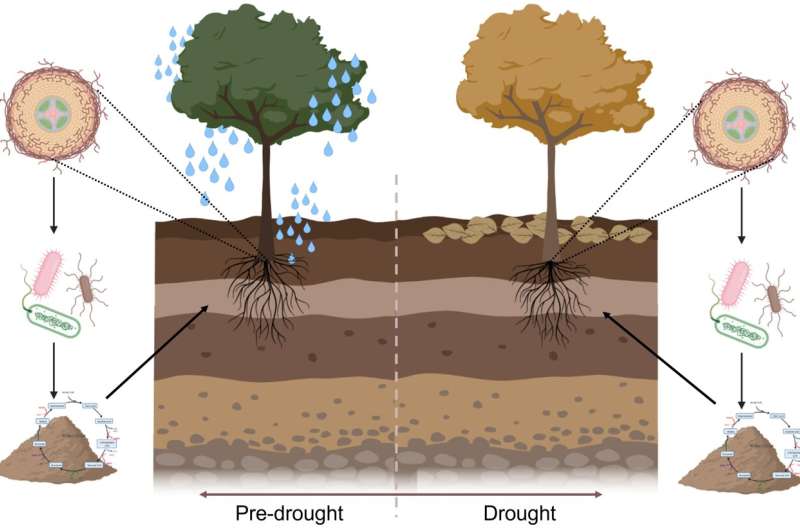New research offers a glimmer of hope in the face of climate change-induced drought. Scientists have discovered that tropical plants form special partnerships with microbes in the soil, helping them weather dry periods.
The study, published in the journal Science of The Total Environment, focuses on the intricate dance between plants, microbes, and soil. This zone around plant roots, called the rhizosphere, is a hotbed of activity where microbes break down organic matter, releasing nutrients plants need to thrive.
Previously, scientists believed changes in the microbial community were the main driver of how soil organic matter breaks down during drought. However, this new research surprised researchers.
"We found that the plant's response to drought, rather than changes in the microbial community itself, primarily shapes the chemistry in the soil," said the lead researcher.
The study, which examined three tropical plant species - Piper auritum, Hibiscus rosa sinensis, and Clitoria fairchildiana - revealed a fascinating discovery. Even during drought, plants can maintain partnerships with specific microbes, giving them an edge over harsh conditions.
This newfound knowledge unlocks exciting possibilities. By understanding these plant-microbe partnerships, scientists can potentially harness the power of beneficial microbes to help plants better withstand drought. This could be crucial in mitigating the effects of climate change on plant health.
The research also employed cutting-edge techniques like 16S rRNA sequencing and metabolomics to analyze these interactions. These tools allowed scientists to see how plant root secretions (exudates) and microbial communities adapt during drought.
For instance, one plant species, Piper auritum, reduced its root exudates under drought, suggesting a lesser reliance on microbes for shaping the soil chemistry. In contrast, other plants like Hibiscus rosa sinensis and Clitoria fairchildiana changed the composition of their exudates, influencing the surrounding microbial community, which in turn impacted the soil environment.
Interestingly, Clitoria fairchildiana seemed to specifically partner with a select group of microbes during drought. This highlights the unique and diverse ways plants interact with their microbial companions.




0 Comments